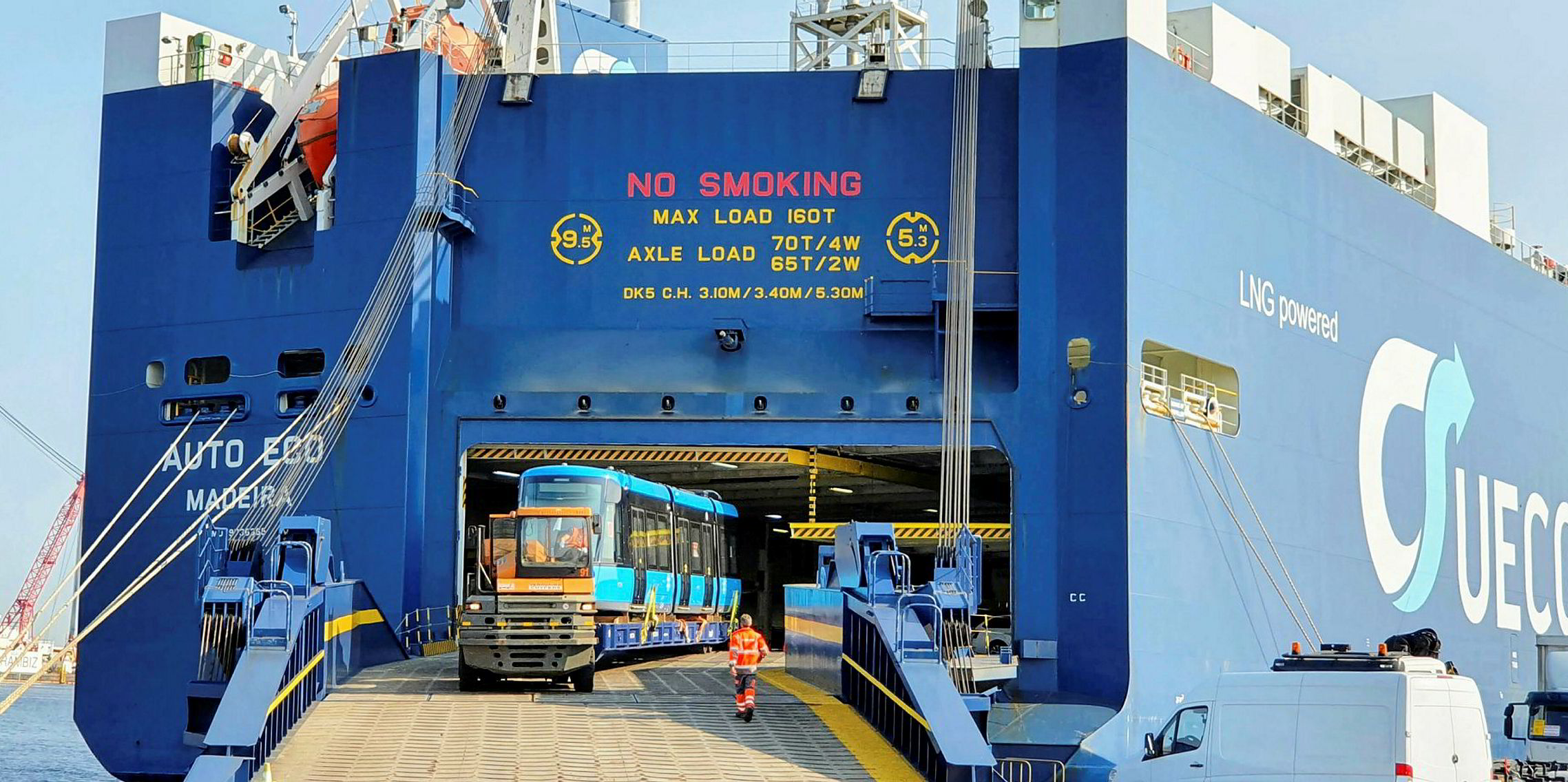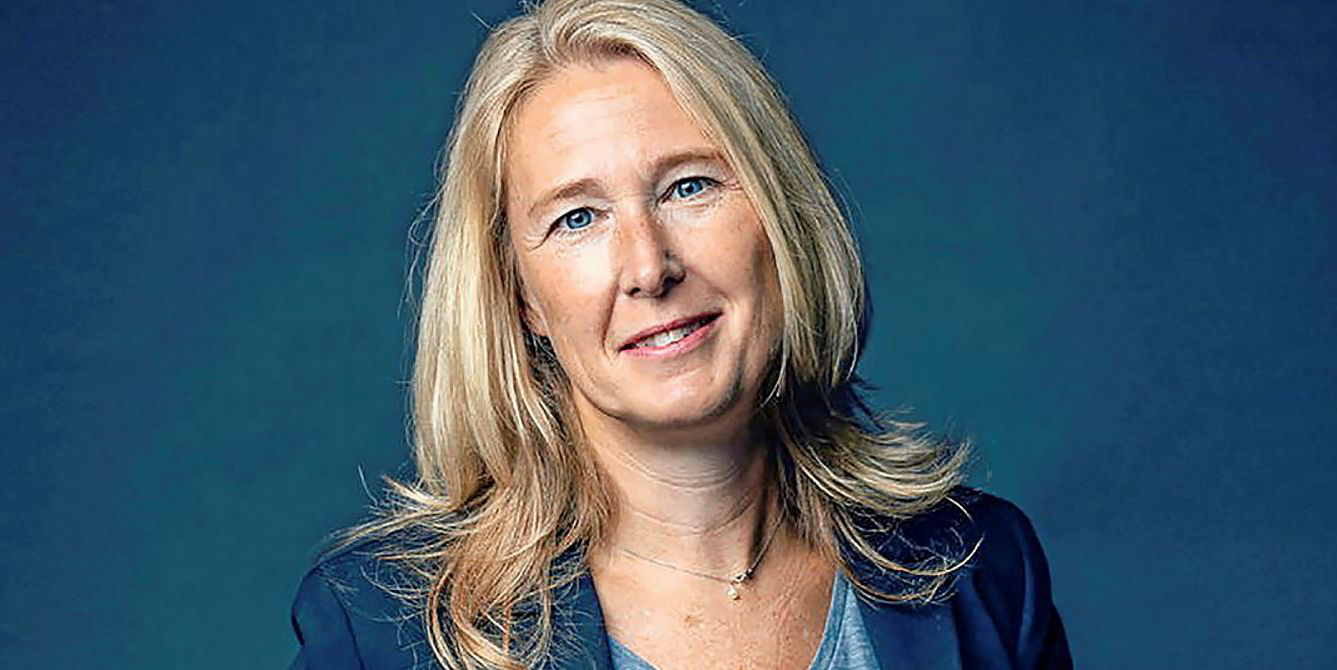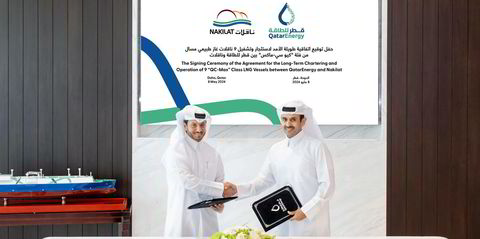United European Car Carriers (UECC) has started using its car carriers to carry trams to Norway in a contract with the City of Oslo.
The NYK Line and Wallenius Lines-owned company said the first carriage was loaded in Spain on the 3,800-ceu pure car truck carrier Auto Eco (built 2016), a duel-fuel vessel that can run on LNG, on 11 September.
The tram was then transhipped onto NYK Line's conventionally powered 4,075-ceu Spica Leader (built 2012) in Zeebrugge, arriving in Drammen on 19 September.
Norway-based UECC's new LNG battery-hybrid ships will join the mix in 2021.
The company said the greener deliveries link UECC to Oslo, the European Green City of 2019.
87 trams to be transported
"Oslo is dedicated to building a green future, and these new energy-efficient trams will be tangible proof of those efforts," added UECC chief executive Glenn Edvardsen.
Another four trams will be delivered in 2020, with regular shipments starting next September.
UECC will handle 87 vehicles in total by 2024.
"UECC will take delivery of our first LNG battery-hybrid PCTC at the end of 2021, with two more to follow," Edvardsen added.
"Once these vessels join our fleet, we expect to deliver the remainder of the new trams all the way to Norway using this world-leading eco technology."
UECC is working with Spanish company CAF, the producer of the trams, and Noatum Logistics (UGL), the Spanish freight forwarding company.
The units will be shipped partially assembled, with final construction, testing and detailing to be completed on delivery in Oslo.
The total value of the tram order is estimated in excess of NOK 4bn ($419m).
The vehicles are lighter and quieter than existing vehicles.
Last October, UECC declared an option for its third battery/LNG hybrid car carrier in China.
The company said Jiangnan Shipyard will build the vessel for deployment in its Atlantic shortsea trade.
The new trio will push the UECC dual-fuel LNG fleet to five vessels, more than 50% of its owned units, and take the company beyond the IMO’s target of 40% carbon reduction by 2030.







